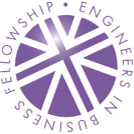Leading Engineering Endeavours – 2023
Back to Competitions | The Leading Engineering Endeavours Project is undertaken by second year engineering students at Birmingham City University (BCU). A total of 101 students took part this year, put into interdisciplinary teams drawn from mechanical, automotive, electronic and manufacturing disciplines. The teams were set a challenge by the Rivers Trust to design and prototype a low-cost solution for monitoring soil health. Teams had regular interactions with the client and presented their solutions at the Innovation Fest 2023 event, held at BCU. Prizes were awarded to the four teams judged to have presented the best solutions The rationale of the project is to make BCU engineering students think beyond the boundaries sometimes imposed by conventional teaching methods, and to take account of wider social, environmental and commercial considerations. The course team believe that this makes for better engineers with more employability skills. |
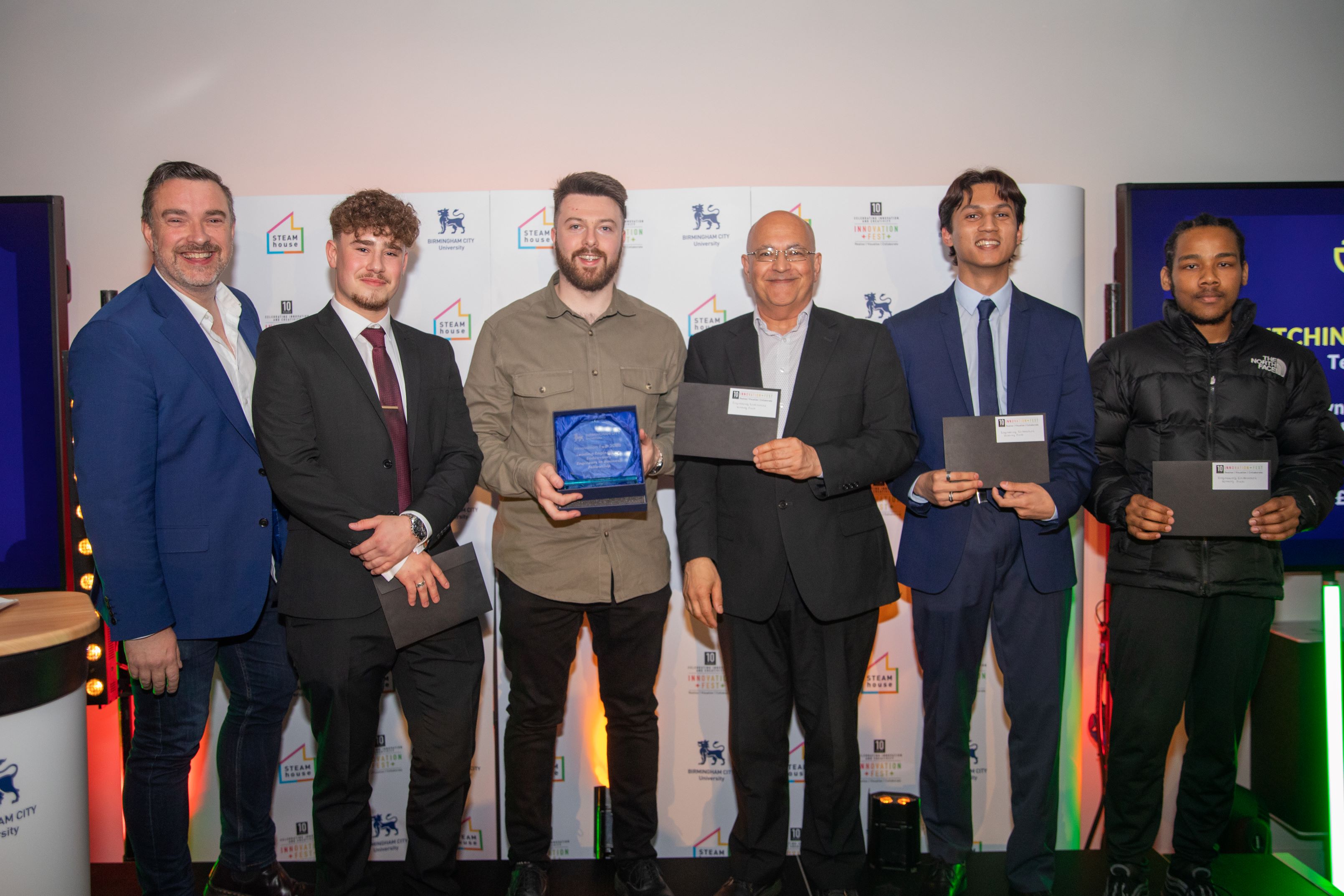

First prize: RiverFlow
Deteriorating soil health is a major concern leading to poorer agricultural yields and increased pollution run-off into rivers. RiverFlow developed a system to help farmers monitor soil health by looking at indicators for its biological, chemical and physical condition. A vibration sensor is used to detect the presence of earthworms in the soil, and the amount of activity is used as a proxy for biological health. Moisture and temperature sensors help to monitor chemical and physical properties. The system provides real-time data, allowing farmers to take steps to improve soil health and fertility where necessary, and to improve efficiency and yields by optimising irrigation.
Students:
- Adam Burgoyne (Manufacturing Engineering)
- Thomas Marshall (Automotive Engineering)
- Iftakhar Hussain (Mechanical Engineering)
- Siem Shanay (Mechanical Engineering)
The team was awarded £1,200
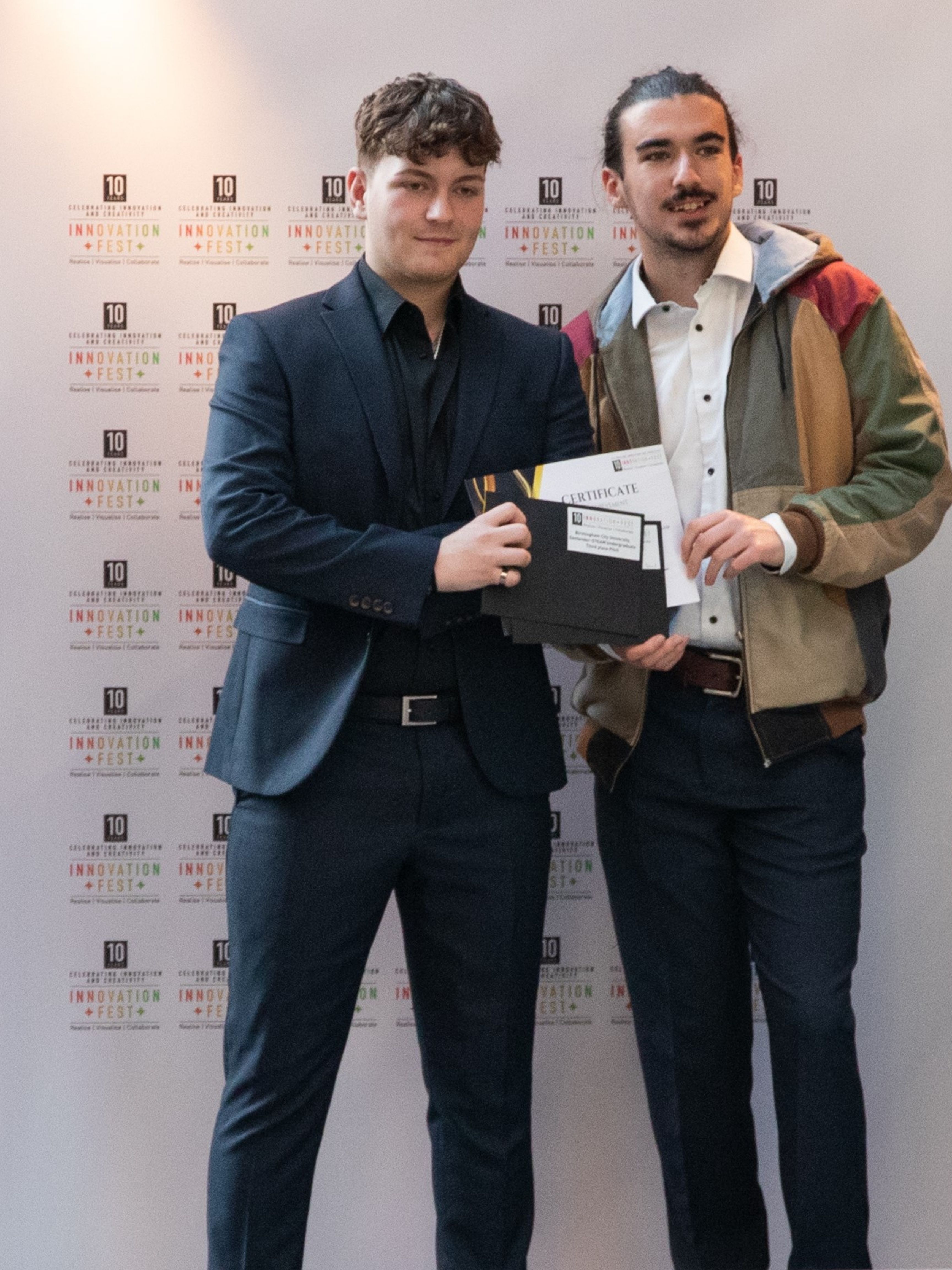
Second prize: Project Infallible
Project Infallible produced an educational package for schools focused around a modular self-assembly soil monitoring kit. The kit was designed so that it could be assembled by primary school children. The aim was to inspire children to become the engineers of tomorrow through raising their awareness of environmental concerns and the role of technology in helping to overcome the challenges they present. The team worked closely with local schools and head teachers to ensure that their product was pitched at the right level and was compatible with the curriculum. Longer term aspirations focused on the use of a geographical database to help map and manage flood and drought risk.
Students:
- Oliver Chambers (Mechanical Engineering)
- Matthew Dilley (Electronic Engineering)
- Thomas Rogers (Electronic Engineering)
The team was awarded £800
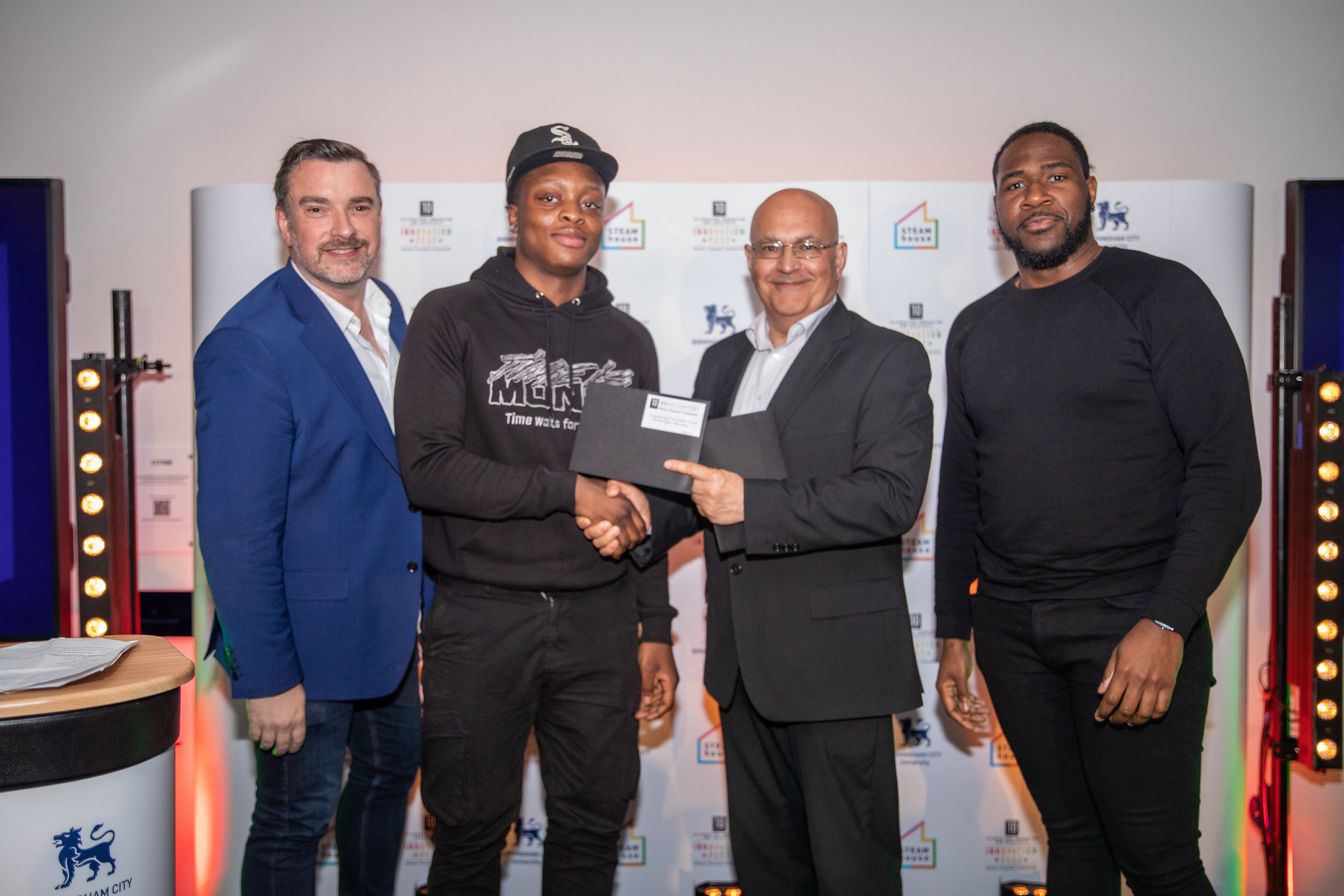
Third prize: Quantum Green
Quantum Green sought to work closely with the Rivers Trust and Citizen Science to produce a monitoring kit that could be used to promote awareness of soil health. The hope was that it would be used by members of the public, as part of the CastCo project to help develop a national database for water and environmental information. In addition to being practical, the package was designed to be used in schools by children in the age range 7-11 with a view to inspiring the next generation. To make sure that the children engaged with data collection, the fun aspects were emphasised. For example, the probe was designed to look like a carrot, and part of the process involved looking at worm ‘poo’.
Students:
- Faye Beresford (Electronic Engineering)
- Jamie Easthope (Mechanical Engineering)
- Jason Hannibal (Mechanical Engineering)
- Roland Oladunjoye (Electronic Engineering)
- Duresa Nedi (Electronic Engineering)
The team was awarded £500
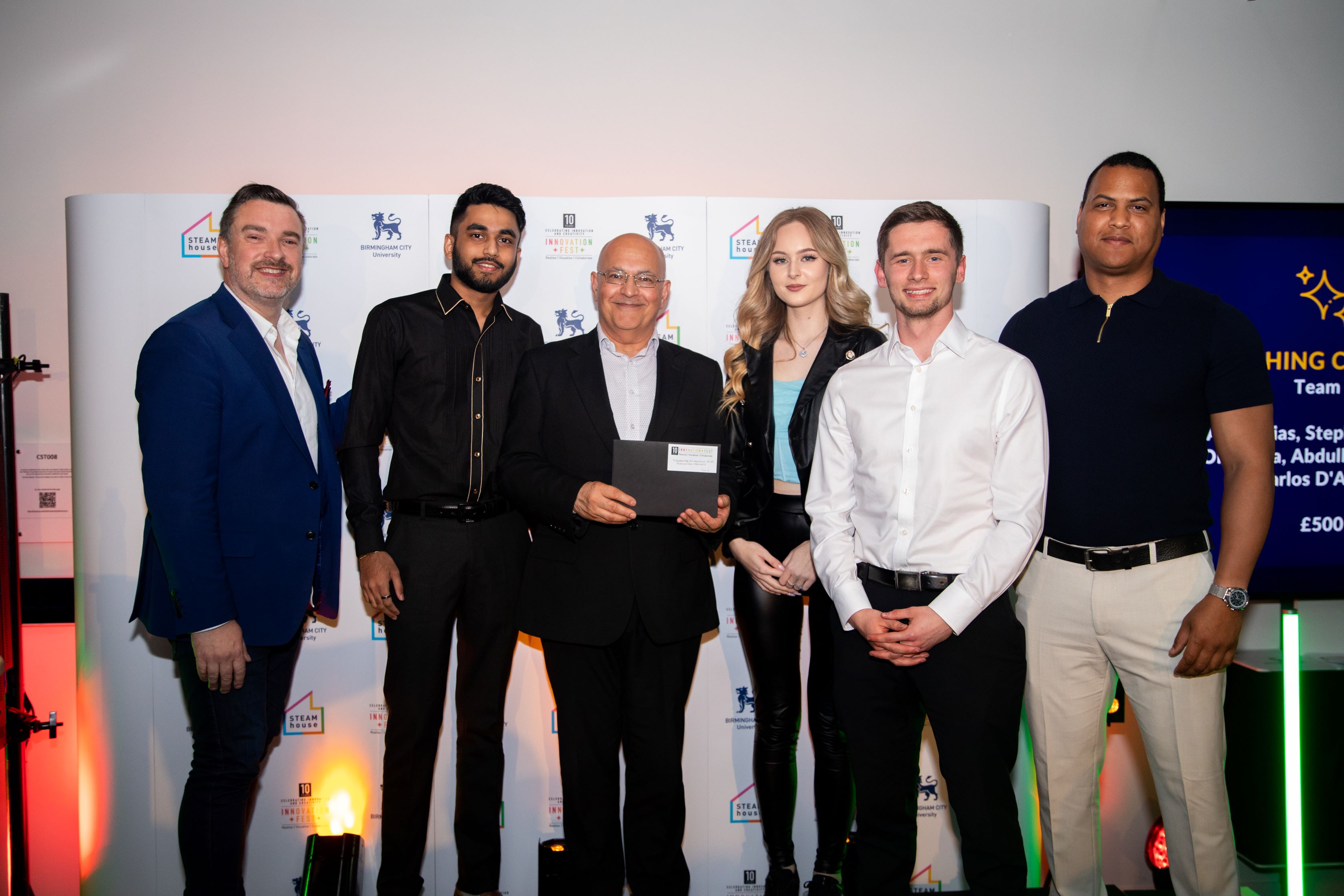
Fourth prize: Unity
Unity focused on the problems caused by the decreasing amounts of nutrients in soils and the effects this can have on human health. Using eco-friendly materials and the technique of additive manufacturing, the team designed and made a custom housing for their monitoring kit. As well as being pitched at farmers, Unity suggest that the kit is also placed in schools, stressing the importance of educating the next generation. Looking to the future, the team also developed an app to display environmental data from different locations. Unity really impressed the team with their overall contribution to the Leading Engineering Endeavours module. The name was well chosen because they presented a united front throughout.
Students:
- Olga Sula (Electronic Engineering)
- Carola D’Aguiar (Electronic Engineering)
- Stephen Tolley (Mechanical Engineering)
- Azlan Dias (Electronic Engineering)
The team was awarded £500
Positive feedback
Once again, working on a real project with a real client and tangible rewards served to bring out the best in our students. The standard of work overall was very high, and the results produced by the top teams were outstanding. The prize money provided by EIBF is very valuable to us because it helps incentivise students to go the extra distance and produce work beyond their own expectations.
Roger Wall
Senior Lecturer, Engineering and the Built Environment
Birmingham City University
